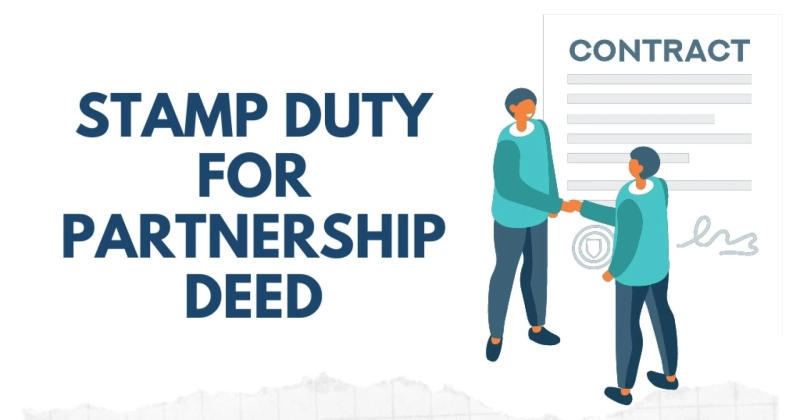When forming a partnership, one of the crucial legal documents that need to be prepared is a partnership deed. A partnership deed is a legal document that outlines the terms and conditions under which a partnership will operate. It is essential for establishing the roles and responsibilities of each partner and the distribution of profits and losses.
However, a partnership deed is not a simple document to create. It requires careful consideration of various legal and financial aspects, including stamp duty.
In this article, we will discuss everything you need to know about stamp duty for partnership deeds, including how much stamp duty is required and the factors that affect it.
What is Stamp Duty?
Stamp duty is a tax imposed by the government on legal documents. The tax is usually paid to the government at the time of document registration or execution. The purpose of stamp duty is to make sure that legal documents are legally binding and enforceable.
In India, the stamp duty is regulated by the Indian Stamp Act, 1899. The Act defines stamp duty as a tax levied on documents, notarial acts, and other instruments.
Also Read - What is the stamp paper value for rent agreement?
How much Stamp Duty is Required for Partnership Deeds?
The amount of stamp duty required for a partnership deed depends on the state where the partnership is being registered. Different states have different stamp duty rates, and the rates can also vary based on the value of the partnership deed.
For example, in the state of Maharashtra, the stamp duty for partnership deeds is 0.5% of the total value of the partnership assets. In Delhi, the stamp duty for partnership deeds is Rs. 200 for every Rs. 100,000 of the partnership's value, subject to a maximum of Rs. 10,000.
In some states, stamp duty for partnership deeds is a fixed amount. For instance, in Tamil Nadu, the stamp duty for partnership deeds is a flat rate of Rs. 50.
Factors that Affect Stamp Duty for Partnership Deeds
Apart from the state where the partnership is being registered, there are other factors that can affect the stamp duty for partnership deeds. These factors include:
The value of the partnership assets: The stamp duty for partnership deeds is usually calculated as a percentage of the total value of the partnership assets. Therefore, the higher the value of the partnership assets, the higher the stamp duty.The duration of the partnership: The stamp duty for partnership deeds can also vary based on the duration of the partnership. For example, in Maharashtra, if the partnership is for a period of fewer than five years, the stamp duty is 0.5% of the total value of the partnership assets. However, if the partnership is for more than five years, the stamp duty is 0.1% of the total value of the partnership assets.The type of partnership: Different types of partnerships, such as general partnerships and limited liability partnerships, can have different stamp duty rates.The state where the partnership agreement is executed: The stamp duty for partnership deeds can also vary based on the state where the partnership agreement is executed, even if the partnership is registered in a different state.Conclusion
In conclusion, stamp duty is an essential aspect of creating a partnership deed. The stamp duty for partnership deeds varies based on the state where the partnership is being registered, the value of the partnership assets, the duration of the partnership, and the type of partnership.
It is essential to consult with a legal expert or a chartered accountant to determine the stamp duty for partnership deeds in your state and to ensure that all legal and financial aspects of the partnership are adequately addressed in the partnership deed.
Posted by Navin


